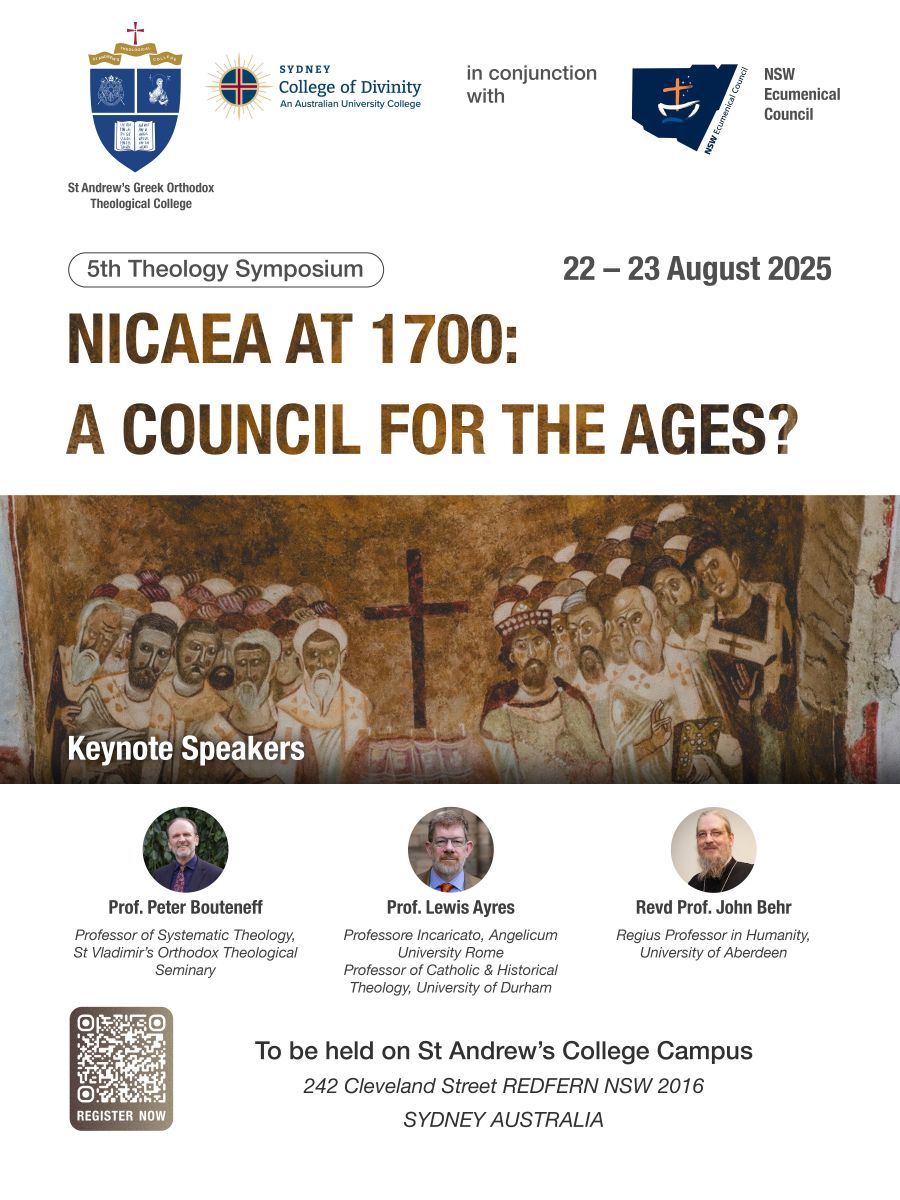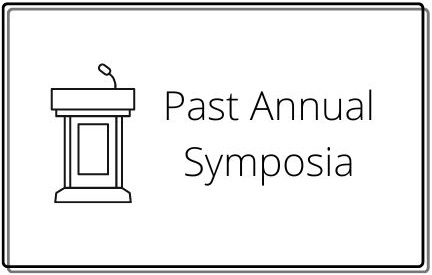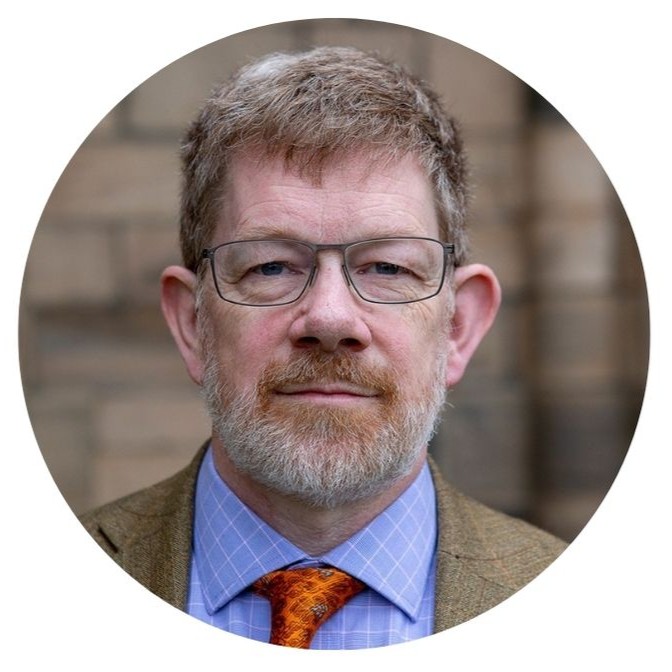|
Fr Alexander Aziz and Mr Michael Ibrahim
St Cyril's Orthodox Theologicai College (AUCD)
'The Symbol of Faith as a Symbol of Resistance: Polemical Utility of the Nicene/Constantinopolitan Creed in the Post-Chalcedonian Period.’
Abstract: The seventh canon of the council of Ephesus sought to codify an emerging theological praxis within the Church, namely the authoritative nature of the Nicene Creed as a measure against which all doctrinal statements were to be assessed. Perhaps the most prominent example of this can be found in the epistolatory exchanges between Cyril and Nestorius in the leadup to the council. Later, in the wake of the council of Chalcedon, the utilisation of the Creed as theological ‘adjudicator’ took on a renewed fervour. The significance of this is demonstrated by the insertion of the Creed into the eucharistic liturgy in the 470s by Peter the Fuller, the non-Chalcedonian patriarch of Antioch, whose various liturgical innovations shaped Eastern liturgies, in both Chalcedonian and non-Chalcedonian traditions. The impetus for this was most likely an attempt to proffer the Creed as a ‘true’ rule of faith in opposition to the perceived ‘innovation’ of the statement produced at the council of Chalcedon. Towards the end of the fifth century, an anonymous pro- Chalcedonian florilegium of Cyrillian quotations supporting a two-nature Christology was appended to a brief defence of the harmony between the Chalcedonian definition and the Nicene and Constantinopolitan creeds. This text survives in Severus of Antioch’s Philalethe, considered to be Severus’ earliest major work. In it, he utilises his training as a lawyer to analyse the source material and to recontextualise these Cyrillian quotations in such a way as to attempt to discredit this assertion of harmony between Chalcedon and Nicaea. Throughout his extant corpus, we find evidence of a credal interpretation which attempts to give weight to Severus’ Christology, the aim of which is to guard the central soteriological principle of theopaschitism, in which the subject of crucifixion and death is one of the Holy Trinity. This in turn would have a lasting impact on neo-Chalcedonian Christology as expressed in the second council of Constantinople in 553. Finally, this paper will highlight an observation made by Fr Alexander Aziz, namely an interesting enjambement within the creedal text as found in the medieval Coptic manuscript tradition which witnesses to the impact of this polemic upon the non-Chalcedonian church of Alexandria.
Revd Dr Demetrios Bathrellos
Holy Cross Orthodox Theological College
Nicaea's Insights into Primacy and Conciliarity
Abstract: In the course of a long-standing theological dialogue, the Joint International Commission for the Theological Dialogue Between the Roman Catholic Church and the Orthodox Church produced several documents, in which it attempted to connect primacy and conciliarity at the local, the regional, and the universal levels of Church life. The theology of the Holy Trinity was a significant source of inspiration for the Commission. However, whereas this theology can be used to support concepts such as conciliarity and communion, it cannot so easily ground the concept of primacy. Contrary to claims made in some of the Commission’s documents, many Church Fathers have argued that there is no order, let alone primacy, in the Trinity. The only ‘primacy’ that exists is that of the ‘monarchy of the Father’, meaning that the Father is the sole cause of the Son and the Holy Spirit. This paper attempts to demonstrate how this principle could be applied to ecclesiological discussions on primacy and conciliarity at the aforementioned levels of Church life.
Revd Dr Rod Benson
General Secretary, NSW Ecumenical Council
Nicaea and Moral Theology
Abstract: Rarely is Nicaea invoked in relation to moral theology or Christian ethics, since the Creed for which it was responsible does not address ethical issues. Yet, to be properly Christian, moral theology requires a robust biblical-theological foundation, and Nicaea provides the first such conciliar statement. This paper outlines the manner in which Nicaea clarifies and codifies the trinitarian basis of Christian ethics, grounding ethical deliberation and action in the relationality of the Persons of the Trinity. Moreover, Nicaea establishes the primacy of human dignity in the confession that Christ is “true God from true God” while also confessing Christ’s full humanity and solidarity with humankind. Nicaea also offers theological tools for ethics through its declarations on creation, resurrection, the gift of the Spirit, the affirmation of the unity and apostolicity of the Church, and future judgment. Nicaea provides a robust grounding for the practice of moral theology with biblical fidelity, theological fidelity, compassion and hope. For Christian ethics, Nicaea is not an irrelevant patristic artifact but a firm theological foundation and dynamic springboard for constructive ethics, calling the Church to action and reflection for the glory of God in our broken world.
Revd Anastasios Bozikis
St Andrew's Greek Orthodox Theological College (AUCD)
"Not With the Jews": Nicaea and the Case for an Uncommon Date of Easter.
Abstract: The dating of Pascha-the most significant Christian feast-has been steeped in controversy from the beginning of the Church’s history. Gospel traditions which presented differing accounts of the exact timing of the events of the Passion and Resurrection of Christ in relation to the Jewish Passover led to various local churches commemorating this Feast on different dates. So important was the resolution of this issue for the emergence of a distinctive Christian identity that the earliest regional synods, episcopal confrontations, and ecclesiastical excommunications were provoked by this calendar dispute.
In the fourth century, as the Church transitioned from its status as a persecuted sect to become the religious bedrock of a reconstituted Roman Empire, the question of establishing a unified Paschal celebration became a priority for the first Christian Emperor, Constantine the Great. In 325 the Synod of Nicaea took up the challenge and proposed a formula for calculating the date of Easter that not only ensured a common date for the churches of the Empire but permanently dissociated the great Christian feast from any calendrical dependence on its Jewish precursor.
This paper will examine the way in which the calculation of the Paschal date has functioned as more than just a convenient temporal mechanism, serving indeed as a means of binding together the likeminded by distinguishing and separating them from the ‘other’, whether that be the Jewish synagogue and heterodox Christian communities of earlier centuries or demarcating between the Roman Catholic, Orthodox and Protestant churches in more recent times. With the onset of ecumenical engagement in the twentieth century, the movement for Christians of different traditions to celebrate the great feasts together has gained traction, though it confronts significant resistance from various quarters.
This paper will suggest that, in the end, both the quest for a common date of Easter, and opposition thereto, has less to do with astronomical and calendrical accuracy or social utility and far more with the question of whom we wish to celebrate with and whom we wish to exclude – foundational principles expressed by the Synod of Nicaea.
Bishop Silouan (Fotineas) of Adelaide
St Andrew's Greek Orthodox Theological College (AUCD)
The Pro-Nicene Theology, Personality and Legacy of St Basil the Great
Abstract: Saint Basil’s life was shaped by his education, monastic outlook and zeal for Nicene orthodoxy. The core ethos that he associated with monasticism was in practice the living out of the Gospel commandments found in Scripture, while his Nicene position was invariably connected to his understanding of salvation. Non-Nicene sentiments receive no sympathy from Basil, even if they purport to honour the sovereignty of one God, the Father. Throughout his priesthood and episcopal ministry Basil consistently opposed every non-Nicene expression of faith, which he resolutely identified as a threat to the communion of the Church. For the bishop of Caesarea, obstacles of division can be overcome and permanently reconciled in the embrace of the church’s communion. Basil’s unyielding dedication to the faith of the church articulated at Nicaea made him not only a success story but also a prototype for a bishop whose way of life was patterned on saintliness. This type of life lived for God was not opposed to public life (“the world”) but rather led Basil towards it, to defend fundamental principles of Christian life in it, and especially during some of the most turbulent years of the Christian empire.
Revd Dr Antonios Kaldas
St Cyril's Orthodox Theological College (AUCD)
Stranger than We Can Imagine: How recent developments in Consciousness Studies revive an Ancient anthropology,
give us new ways to express Nicene Christology, and make mystery cool again
Abstract: Modernity dictates the ultimate goal of inquiry to be the elimination of mystery. But what if there are mysteries in nature that are inherently and intractably mysterious? Consciousness—first-person phenomenal experience or what-it-is-like to be you—is being increasingly seen as just such an intractable mystery. The creative and convincing responses to Reductive Physicalism of the past seventy years show unexpected and interesting parallels with the Nicene response to Arianism, offer new ways of expressing theological mysteries such as the perichoresis of the Holy Trinity, and are restoring to mystery the respectability it deserves.
Dr Samuel Kaldas
University of Notre Dame Australia
Of One Essence with the Father: Deification and the Doctrine of Nicaea in the Theology of Matthew the Poor
Abstract: Mattā al-Miskīn (1919–2006) was one of the most influential Coptic theologians and ascetics of the twentieth century. He was one of the first and only modern Coptic thinkers whose theological works were widely translated, read and studied outside the Coptic Church, especially among Eastern Orthodox readers. In 1981, Mattā published a magisterial treatment of Athanasius’ life and theology that cast him as the faithful inheritor and defender of a traditional theology of salvation against the philosophical rationalism of the Arians, who sought to preserve the conception of God as a simple unity, at the cost of severing the connection between God and humanity in a way that rendered the doctrine of salvation incoherent.
This paper examines Mattā’s study of Athanasius in light of one of the most central and contested themes of Mattā’s theological vision — theosis or deification. As is often the case with contemporary treatments of Nicaea, Mattā’s account of the historical controversy is informed by present day concerns: for Mattā, whose doctrine of theosis was criticised as heretical by prominent contemporaries, Athanasius’ defence of the Son’s homoousian relationship with the Father equally entailed that through the incarnation, humanity is brought into a deifying relationship with the divine nature. After a brief overview of the 20th century controversy over deification in the Coptic Church, the paper will explore how both Mattā and his opponents used Nicaea and Athanasius to claim legitimacy for their own positions. The aim is both to contribute to scholarly understanding of the contemporary Coptic theological landscape by making the primary sources available and analysing them in English, and to demonstrate the continued relevance of Nicaea to Christian theology.
Assoc. Professor Philip Kariatlis
St Andrew's Orthodox Theological College (AUCD)
The Cross as Glory: Divine Manifestation and the Nicene Vision in St Athanasios' On the Incarnation
Abstract: Modern Christian soteriology places the Cross at the heart of divine redemption. Yet the original Nicene Creed of 325 notably omits explicit mention of the crucifixion, prompting questions about the role of the Cross in early conciliar theology. This paper explores the theological centrality of the Cross in fourth-century Nicene thought, focusing on St Athanasius’ On the Incarnation. While the Creed states only that Christ “suffered” (παθόντα), this study contends that the Cross is theologically embedded in the Creed’s participial phrase—ἐνανθρωπήσαντα… παθόντα (“becoming human… suffered”)—and undergirded by the Incarnational logic it affirms. For Athanasius, the Incarnation entails the assumption not only of flesh but of suffering and death, with the Cross marking the telos of the Word’s redemptive mission. A close reading of chapters 19–25 identifies six interwoven dimensions of the Cross: epiphanic, victorious, pedagogical, typological, paradoxically fitting, and enduringly efficacious. Rather than a theological supplement, the Passion is intrinsic to the Word’s becoming human and central to the Creed’s soteriological claim: that the Word became human and suffered διὰ τὴν ἡμετέραν σωτηρίαν (“for our salvation”). The paper concludes by considering the Cross’s ongoing theological and existential significance for contemporary Christian witness.
Revd Professor Gerard Kelly
Catholic Institute of Sydney
The Nicaea Anniversary: An Opportunity to re-visit a Recent Ecumenical Project
Abstract: The first ecumenical council at Nicaea was convened to end division and bring about unity in the church. Two features stand out: the conciliar methodology as a way to arrive at a common understanding of the apostolic faith; and the creed as the expression or symbol of that faith. These two features have been at play in the “Confessing the One Faith” project of the World Council of Church’s Faith and Order Commission. The aim of the project was set out at the 1983 Vancouver Assembly of the WCC: “… the churches would share a common understanding of the apostolic faith, and be able to confess this message together in ways understandable, reconciling and liberating to their contemporaries”. The aim was not to formulate a new ecumenical creed but to offer an explication of the Nicene Creed so that it might be used as an instrument of recognition of the apostolic faith among the various confessions and denominations. This paper will draw on insights from the Council of Nicaea to better understand and evaluate the “Confessing the One Faith” project. The paper asks the question: Does the Nicaea anniversary give an opportunity to re-visit the “Confessing the One Faith” project thirty years later?
Mr Michael Kuznetsov
Kharkiv National University
The Council of Nicaea and the Role of Athanasius the Great
Abstract: This paper examines the theological and ecclesial significance of the First Council of Nicaea (325 CE) through the lens of Athanasius of Alexandria’s formative contribution. While only a deacon at the time, Athanasius emerged as a key theological figure whose advocacy for the term homoousion—affirming the consubstantiality of the Son with the Father—shaped both the content and reception of the Nicene Creed. The paper argues that Athanasius’ insistence on the Son’s full divinity was not merely a reaction to Arian subordinationism, but a soteriological necessity rooted in his broader vision of divine-human union. In the post-conciliar decades, his theological and polemical writings, composed amidst repeated exiles and political opposition, solidified Nicene orthodoxy against various forms of anti-Nicene resurgence. By situating Athanasius’ role within the broader conciliar context—including canonical and ecclesial developments—the paper contends that his legacy was pivotal not only for doctrinal clarity but also for the enduring reception and transmission of Nicene theology within the Church.
Dr Peter John McGregor
Catholic Institute of Sydney
The Council of Nicaea and the Paradoxes of Faith, with a Focus on False Cataphaticism
Abstract: There are five possible responses to what Henri de Lubac called the paradoxes of faith: apostasy, false cataphaticism, synthesis, false apophaticism, and acceptance. Apostasy is the response that rejects the whole paradox. The inability of many of Jesus’ disciples to accept his statement that they must eat his body and drink his blood is an example. False cataphaticism is the response that accepts one truth but rejects another. The positions of Nestorius and Eutyches on the divinity and humanity of Christ is an example. Synthesis is the response that reduces both paradoxical truths to comprehensible truths and then synthesises them. Hegel’s attempt to explain the Trinity is an example. False apophaticism is the response that does not attempt to solve the problem of two truths, but rather to “dissolve” it. John Hick’s attempt to reconcile an all-loving God with his sending of morally good non-Christians to eternal punishment in Hell is an example. Acceptance is the response that welcomes both truths as true, along with our inability to completely reconcile them because we cannot completely comprehend them. An example of this is the development of the concept of “relation” by St Basil the Great in response to the Eunomians, who taught that the Son has a dissimilar substance from the Father. This paper will go on to examine in greater detail the responses of Arius and Apollinarius to the paradox of Christ being both human and divine as examples of false cataphaticism. It will explore how and why both Arius and Apollinarius took this path, thus helping us to see how the council fathers of Nicaea managed to accept that Jesus was fully divine. It will conclude by examining how false cataphatic responses to the natures of Christ are not just a thing of the past, but keep reoccurring, even in our own time.
Dr Andrew Mellas
St Andrew's Greek Orthodox Theological College (AUCD)
The First Ecumenical Synod of Nicaea in the Liturgical Imagination of Byzantium
Abstract: In the liturgical life of the Orthodox Church, the feast of the Holy Fathers of the First Ecumenical Synod of Nicaea is celebrated on the seventh Sunday after Pascha. Depending on the date of Easter, this celebration generally corresponds with the beginning of the synod in Nicaea (20 May 325). However, the significance of the liturgical positioning of this feast, between Ascension and Pentecost, is far greater. Aspects of the lex credendi, the mystery of the Holy Trinity and the defeat of Arianism, are proclaimed and experienced in the lex orandi of the Church. Moreover, the liturgical arts of Byzantine iconography and hymnography reimagine the first ecumenical synod held in Nicaea in striking ways. Icons depicting the synod draw on a number of motifs from the iconographic tradition of Byzantium and beyond to embody the synodal theology of the Church. And hymns for the liturgical commemoration of the first synod in Nicaea freely conflate the theology of multiple ecumenical synods, blurring the divisions of history. This paper will explore these liturgical arts and their intersection, showing how the celebration of this feast invited the faithful to feel “the great mystery of piety”.
Joe Mock
Gracepoint Presbyterian Church
Zurich and Nicaea: Bullinger and the Trinity
Abstract: Zurich Reformer Heinrich Bullinger (1504-1575) repeatedly stressed that the faith of the Zurich Reformers was the “old” faith of the primitive church as opposed to the “new” faith of Rome in the 16th century. His understanding of sola Scriptura was nuanced as he only concurred with the Fathers of the primitive church and decisions of church councils when, in his opinion, they had correctly interpreted Scripture. Together with the first four general councils or synods of the church the Nicene Creed is discussed at the commencement of his magnum opus, The Decades. It also underlies The Second Helvetic Confession. Like scholars in the West, both Catholic and Protestant, Bullinger held to the teaching of the Nicene Creed expanded after the Council of Constantinople and the 3rd Council of Toledo (589). Trinitarian heresies reemerged in the early years of the Reformation and Bullinger, like other reformers, had to oppose such false teaching with correct interpretation of Scripture and judicious citing of Church Fathers and church councils. Throughout his oeuvre Bullinger often cited Nicaea, particularly in his opposition to the teaching of Arius. This paper will look at how Nicaea underscores his teaching on the Trinity. As the major focus at Nicaea, contra Arius, was the full Godhead of Christ, this paper will consider those works of Bullinger that underscore the full divinity of Christ. Apart from The Decades (1549-1551) focus will be given to Bullinger’s unpacking of the full divinity of Christ in his various commentaries, The Two Natures of Christ (1534), Consensus Tigurinus (1549), The Evangelical Churches are neither Heretical nor Schismatic (1552), 100 Sermons on The Apocalypse (1557), Concerning Councils (1561), Catechism for Adults (1561) and The Second Helvetic Confession (1566). Bullinger’s handling of Servetus and the Trinitarian controversies in Poland will also be discussed.
Professor Neil Ormerod
Adjunct Researcher, Australian Centre for Christianity and Culture, Charles Sturt University
The Council of Nicaea and the Status of the Divine Processions
Abstract: The Council of Nicaea marks the definitive shift from God-for-us to God-in-Godself, a movement from the experience of the economic Trinity to an assertion of an immanent Trinity; that is, the distinctions we experience in the economy arise from real distinctions in Godself. From the missions of the Word and Spirit, as evidenced in the NT, we are led to believe in the processions of the Word and Spirit. And so, the Creed speaks of “God from God, Light from Light, true God from true God, eternally begotten from the Father”; and “the Spirit proceeds from the Father (and the Son).” Yet contemporary theology is oddly silent on the question of the processions. It is not uncommon to hear the concern that the processions are inherently hierarchical, leading to a subordinationist account of Son and Spirit. This paper will challenge this view, arguing among other things that such a conclusion implicitly accepts the patriarchal and hierarchical assumptions it seeks to criticise.
Dr Vicki Petrakis
Macquarie University
Athanasius Contra Mundum: the "Pillar of the Church" and the New-Nicene Politics in the Thought of Gregory Nazianzen
Abstract: This paper will investigate the thought of Gregory of Nazianzus in relation to the great St Athanasius from his panegyric dedicated to the saint. It will attempt to put into context his regard for Athanasius as “Pillar of the Church” and the reasons Gregory gives, which consolidated the great Alexandrian as the leading exponent of Nicene anti-Arian politics. It will examine why he populated himself with Athanasius’ legacy in regard to his own disputes with neo-Arians, emphasizing, from evidence in Oration 21, his panegyric On the Great Athanasius, that Gregory framed Nicene politics and the orthodox faith around virtue and contemplation granted by God.
It will suggest that Christian theology was, for Gregory, a relational and revelational experience between God and the human being, and the basis of this orthodox authenticity rested on the triadic God’s initiatives of making himself known, for the progress and emancipation of the right faith. Not only does Gregory confirm his own position in this Oration, on the unity of the Godhead and distinct properties/personalities [“ἰδιότησι” (Or. 21.13)/ “ἰδιότητας” (Or. 21.35)] belonging to the Trinity, he describes the triadic God’s personal and inner-relational attributes extending to the human being, as a relational enlightenment [“συγγενοῦς ἐλλάμψεως,” (Or. 21.1)], inferencing our capacity to be edified, through our inclination [“νεῦσίς” (Or. 21.1] towards God and life [“εἰκείωσις” (Or. 21.1)] with God.
To this extent, the paper will suggest that Gregory, by aligning himself with the Nicene credal Homoousian supported by Athanasius, but also Athanasius’ inspired support for the deity of the Holy Spirit (Or. 21.33), frames the law of Orthodoxy around Athanasius’ pious and virtuous nature; prerequisites for articulating his own neo-Nicene agenda, of the deity of the Holy Spirit and the consubstantial triadic God – a lamp-post for all times.
Mr Lawrence Qummou
University of Notre Dame Australia
Salvific Logic: Nicaea and the God-World Relationship
Abstract: Depending on the source or sub-discipline one consults, there are various persuasive claims for the overarching legacy of the First Ecumenical Council at Nicaea in 325. One might, for example, plausibly argue that the Council marked the official establishment of creedal statements as normative instruments of Church unity; a decisive step in overcoming subordinationist Christologies and monarchian theologies, while attempting to chart the relations within the Godhead; an affirmation of the harmony between philosophy and theology (of the preference for Origen over Tertullian) through the adoption of the term homoousion in the creed; or the emergence of imperial power as a consequential force in orthodoxy. There are, of course, others.
This paper will argue that among these fundamental legacies of Nicaea, one should also include the ‘salvific logic’ that underpins the God-world relationship. That is, the debates on biblical interpretation that both preceded and informed the Council were, in effect, questions about how to read Scripture in light of the Paschal Mystery, insofar as that event—not creation as traditionally understood—serves as the primary reference point for understanding the God-world relationship. Put another way, the complex debates concerning the eternal correlativity of the Father and the Son, the Son’s divinity, and by extension the Son’s fulfilment of the Father’s will, are simultaneously questions of theological anthropology, soteriology, and ultimately eschatology. It will be demonstrated that it is precisely this logic that shaped the councils that followed Nicaea, most notably in Ephesus 431 and Chalcedon 451.
Dr James Rutherford
Moore Theological College
One God the Father Almighty? Appropriating Augustine's Exegesis of Deuteronomy 6:4 in Response to the Challenge of Three Gods
Abstract: The 11th-century Muslim Scholar Qadi Abd Al-Jabbar critiqued the Christian claim to believe in one God as doublespeak disguising polytheism, or the Islamic sin of shirk. In his letter to Ablabius, Gregory of Nyssa signals his agreement with Al-Jabbar’s claim that the Christian belief implies “three” in vulgar language, but he rejects this sort of speech; in his On the Trinity, Augustine struggles to explain why “three persons” but not “three gods” is suitable for God. However, for both Augustine and Nyssen, “three Gods” must be rejected because Deuteronomy 6:4 prohibits such a claim. By staying at the linguistic level of the sort of language we may or may not use, neither Augustine nor Nyssen’s argument can disarm Al-Jabbar’s appeal to common sense.
However, a close reading of Deuteronomy 6:4 in Augustine’s Corpus and the Hebrew Bible moves past Al-Jabbar’s criticism of linguistic doublespeak to reveal a striking conceptual difference between Al-Jabbar and the Biblical confession, the former invoking all genuine plurality as shirk and the latter admitting plurality into its conception of Deity but fencing it in with the declaration of a personal, divine unity, namely, “Yahweh the Gods is one God.” To argue this, the paper first sketches the argument of On the Trinity 7.4.8 and the role of Deuteronomy 6:4 in the text. Second, the 11 quotations of the text in Augustine’s corpus are then surveyed. Third, it is argued that Augustine’s use of the text demonstrates a consistent pattern of exegesis that makes sense of the Hebrew text, yielding the interpretative translation, “Hear, O Israel, the YHWH our Gods, YHWH is One (God).”
The Revd Canon Dr Mark Thompson
Moore Theological College
Nicaea and Holy Scripture
Abstract: The Council of Nicaea in AD 325 is a landmark in Christian history, both the history of the churches and the history of theological reflection in the churches. Yet the bishops who gathered at the summons of the Emperor that year did not believe that they were introducing any novelty into Christian discussion. They believed they were defending the faith taught in Scripture against the innovation of others (Arius et al.) that threatened to undermine both the Christian confession of God and the Christian understanding of salvation. Yet in order to defend the teaching of Scripture, they were compelled to use language that was not actually found in Scripture. This simple fact, no less than the language adopted in the creed the council produced, and the philosophical conceptualities associated with it, have generated criticism over the centuries since.
This paper will consider again the relation between the affirmations of the Nicene Creed and the statements of Scripture. Are we able to speak of the Creed as a faithful expression of biblical faith? Does the Creed fall foul of the apostolic injunction τὸ μὴ ὑπὲρ ἃ γέγραπται (“not to go beyond what is written”)? Must the Creed be affirmed if the sense of Scripture is to be maintained without loss? These are questions of very significant import for Protestants, who have always acknowledged the authority of the Creeds as a normed norm (norma normata) while holding firmly to the authority of Scripture as the norming norm that is not [itself] normed (norma normans non normata).
It has become a particular focus of a contrived theological debate between the concepts of “biblicism” and “theological retrieval” that Scripture was used by both sides of the Arian debate and so that Scripture is insufficient to defend Scripture. Is there a way of acknowledging the realities of the fourth-century debate that does not evacuate sola scriptura of all meaning?
|


.jpg)



.jpg)


.jpg)



.png)